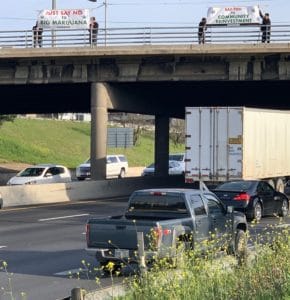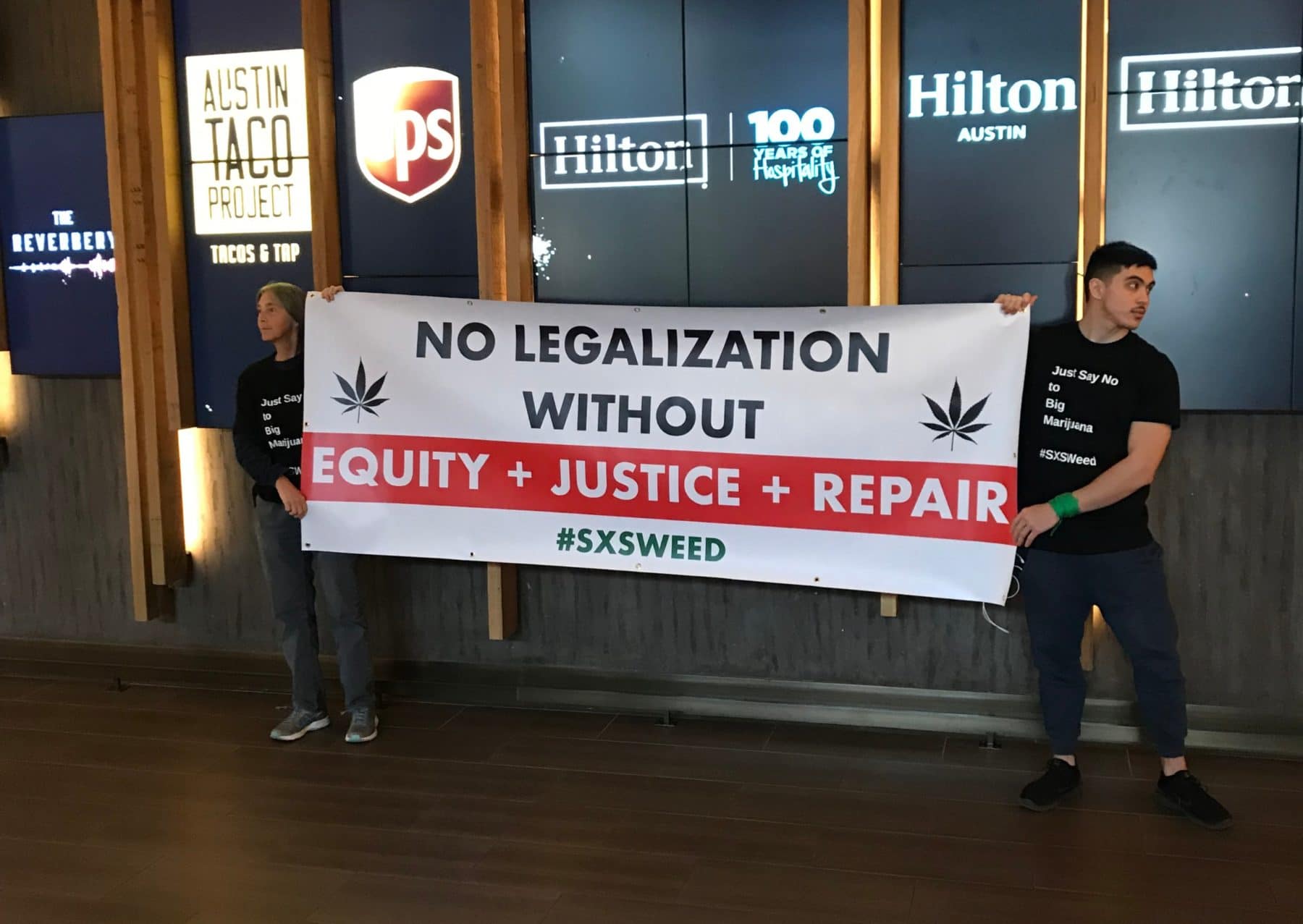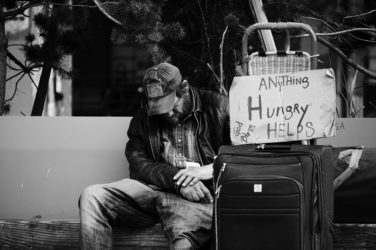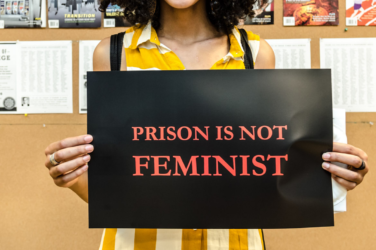On March 15, cannabis activists protested outside the South by Southwest (SXSW) gathering at the Hilton Austin Downtown while former US House Speaker John Boehner presented on current cannabis business trends and the path to national legalization.
“Just say no to big marijuana” one banner read. “No legalization without equity + justice + repair” read another. Activists gathered in the hotel lobby, before being forced out to the sidewalk. They also raised banners over the I-35 freeway, about a mile from the hotel.
 Protesters highlighted the hypocrisy that Boehner—who opposed legalization while he was the third most powerful lawmaker in the country—now profits from the legal cannabis industry, as a board member of Acreage Holdings.
Protesters highlighted the hypocrisy that Boehner—who opposed legalization while he was the third most powerful lawmaker in the country—now profits from the legal cannabis industry, as a board member of Acreage Holdings.
Activists also criticized Adam Bierman, CEO of MedMen, the largest US cannabis corporation, who also presented at SXSW the day prior in a session titled “The New Normal.” MedMen is currently facing a series of allegations and even lawsuits related to labor violations, misuse of financial resources, and charges of racism and homophobia.
“This is what the cannabis consumer is demanding: corporate responsibility and an equitable industry that looks like the populace of America.”
The protests were organized by the Equity First Alliance (EFA), a national coalition of cannabis and social justice organizations. Felicia Carbajal of EFA and the Social Impact Center spoke with Filter about EFA’s intention to point out the lack of social equity in the rapidly growing cannabis industry.
“We’re seeing what the cannabis industry’s ownership is looking like,” she said, “and it’s a lot of older white men who don’t seem to care about the racism and homophobia that we’re fighting against. We need the world to see that this is what the cannabis consumer is demanding: corporate responsibility and an equitable industry that looks like the populace of America.”
EFA—which organized the first-ever National Expungement Week last November—also juxtaposed the weed conference programming at the Hilton hotel with the conditions of the Travis County Jail a mile away, and the fact that people of color are still disproportionately arrested and incarcerated for marijuana offenses. In fact, according to FBI crime data, Texas ranked number one in the US for marijuana arrests, with 12 percent of all marijuana arrests nationwide in 2016.
“My city of Los Angeles has the largest jail population in our country, with 200,000 people who still have not had their cannabis convictions removed,” Carbajal said, “even though we have millions of dollars flowing through our [legal] cannabis market.” California is currently proceeding with a two-year process to review expungement applications representing decades worth of cannabis convictions, with no guarantee of eventual expungement.
The protests also highlighted the slow pace of progress in cannabis social equity programs nationwide. Cities like Los Angeles, San Francisco and Oakland, as well as state governments like California and Massachusetts have all launched different forms of cannabis social equity program. While the details and benefits of each program differ, they all seek to reduce financial, and other barriers to entry into the cannabis industry for applicants from communities disproportionately impacted by the War on Drugs.
“We’re only giving lip service to these goals.”
But where many activists and small entrepreneurs increasingly agree is that social equity programs are underfunded and not moving quickly enough.
“We’re only giving lip service to these goals,” said Kristen Lovell of EFA, who also helped organize Friday’s protests. “Right now in LA, we do not have a funded social equity program. We’re over a year in, moving into Phase III and we do not have the funding for the business and technical assistance mandated by the city. It goes against the original intent of the legislation, and we’re neglecting a disadvantaged population.”
Lovell explained how in Los Angeles, large cannabis businesses and investors have entered the local market to partner with social equity applicants. These applicants often lack the capital and resources to start up a cannabis business, so they are incentivized to team up with the larger companies.
These outside cannabis companies choose to partner with social equity applicants to receive priority in cannabis license applications. But, as Carbajal noted in a Marijuana Business Daily report, these partnerships may often serve the larger businesses to the detriment of social equity applicants, who may be pressured to divest their shares in their own business.
Lovell pointed out that cannabis businesses are required to dedicate money and resources to their local communities, under community benefit agreements written in the licenses themselves. But these provisions are simply not being enforced by cities and states, she said, allowing cannabis companies to profit without any obligation to the neighborhoods most affected by the War on Drugs.
Asked what’s next, Carbajal said EFA will be planning similar protests in the future. The organization wants to partner and collaborate with other social justice groups, she said, and work together towards restorative justice.
Lovell hoped that people will see the problems in legal cannabis are greater than just Boehner and Bierman. “We need to maintain visibility on these issues,” she said. “Whenever the industry talks about marketing and investment, we need to make those conversations about community reinvestment and expungement. Before people get green in the eyes, we need to release the prisoners and expunge these crimes.”
Photos: Equity First Alliance




